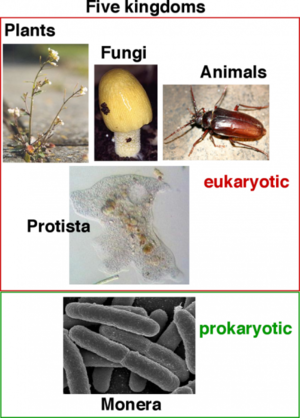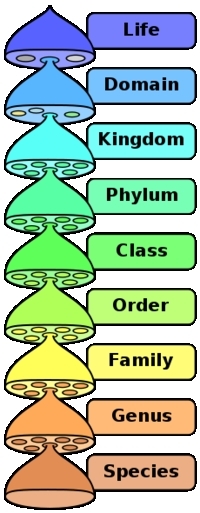Taxonomy

In biology, taxonomy is the scientific classification scheme of grouping and categorizing organisms, including the concepts of genus or species. A taxon is any inividual species or subspecies that has distinct and recognizable characteristics. Current biological classification has its root in the work of Carolus Linnaeus, who grouped species according to shared physical characteristics. These groupings have since been revised to improve consistency with the Darwinian principle of common descent. Molecular phylogenetics, which uses DNA sequences as criteria, has driven many recent revisions to taxonomy.
Taxonomic ranks
Today, nomenclature is regulated by the Nomenclature Codes, which allow names divided into an indefinite number of ranks. There are eight chief taxonomic ranks: domain, kingdom, phylum (division in botany), class, order, family, genus, species; the domain concept proposed by Carl Woese is now widely accepted as one of the fundamental ranks.[1] The term taxon is applied to any of the ranks among the tree of life; the plural of the term taxon is taxa.
Domains and kingdoms
Throughout most of the history of science from Aristotle to Linnaeus and into the twentieth century living species were divided into two kingdoms: animals and plants. Driven by DNA characterizations and other modern analysis, fungi and bacteria have now been removed to separate kingdoms.
References
Citation
Hogan, C. (2014). Taxonomy. Retrieved from http://editors.eol.org/eoearth/wiki/taxonomy- ↑ Carl R. Woese, Otto Kandler and Mark L. Wheelis: Towards a natural system of organisms: proposal for the domains Archaea, Bacteria, and Eucarya. Proceedings of the National Academy of Sciences of the United States of America, 87(12):4576-9.
